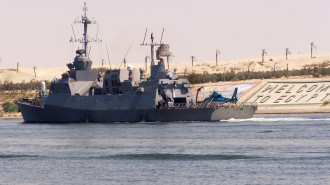
How Russia is using the Jewish Agency to strong-arm Israel

Israel has been walking a tightrope over the Ukraine war as it tries to maintain relations with Russia without compromising its commitment to Western allies.
The rift between Tel Aviv and Moscow, however, has been widening.
What started in April with then-Foreign Minister Yair Lapid harshly criticising Russia over “war crimes in Ukraine” has sent the two countries down an escalating path of acrimonious exchanges.
In May, Russia claimed Israeli mercenaries were fighting alongside the far-right Azov Regiment in Ukraine. This came shortly after Foreign Minister Sergei Lavrov said that “Hitler had Jewish blood,” causing Tel Aviv to demand an apology from Moscow, which Vladimir Putin reportedly later offered.
The tension took a practical form late last month after Russian authorities informed the Jewish Agency (JA), the organisation tasked with encouraging and processing Jewish immigration to Israel, that they were planning to take legal action against it unless the JA accepted a number of demands.
In late July, in what may represent the lowest point in Russia-Israel relations since the collapse of the Soviet Union, Russia’s Ministry of Justice ordered the JA to cease all operations in the Russian Federation.
"The escalation came shortly after Lapid, a fierce critic of Russia's Ukraine invasion, was inaugurated as Israel's new PM. This opened the door for speculation on the significance of the timing and whether it was meant to punish the new leader"
The order was delivered in a letter to Moscow’s Basmany Court by the Russian Ministry of Justice, requesting the dissolution of the agency over legal violations. No further details as per the nature of the violations were provided by the court. A 28-day preliminary hearing period was given to discuss the request.
The ministry did not specify the issue beyond saying that the Jewish Agency was found “in violation of Russian law in carrying out its activities”.
The escalation came shortly after Lapid, a fierce critic of Russia’s Ukraine invasion, was inaugurated as Israel’s new prime minister. This opened the door for speculation on the significance of the timing of Russia’s step and whether it was, among other things, meant to punish the new pm.
Former PM Naftali Bennett had tried to walk a tightrope by expressing his government’s dissatisfaction with the Ukraine invasion - as to be in sync with Israel’s Western allies - but without directly or explicitly condemning Moscow.
On 25 July, Lapid reacted to Russia’s decision to ban JA with almost the same tone as in his previous anti-Russia statements. He warned Russia that shutting down JA offices in the country would be a “grave event” which will negatively impact bilateral ties between Tel Aviv and Moscow.
Behind the scenes, however, and signalling Israel’s growing concerns over the situation, the PM was reportedly working to resolve the issue directly with Moscow through diplomatic channels. The PM’s office announced that it was planning to send a legal delegation to Moscow to discuss the issue with Russian officials. The announcement was followed by a meeting between Lapid and the delegation to assess the situation.
The delegation will “make every effort to exhaust the legal dialogue alongside advancing the high-level diplomatic dialogue on the issue,” Lapid said.
The Kremlin had reassured Israel that the JA matter is purely legal and should not spill over into the bilateral ties between the two countries.
|
|
"There is no need to politicise this situation and project it onto the entire range of Russian-Israeli relations," stated the Kremlin spokesman Dmitry Peskov.
This, however, did not stop Moscow from continuing to express its overall dissatisfaction with Israel. The Kremlin’s reassurance was accompanied by the Russian Foreign Ministry’s criticism of Israel’s longstanding anti-Russian behaviour over the conflict in Ukraine.
“In recent months we have heard, at the level of statements, completely unconstructive and, most importantly, biased rhetoric from Tel Aviv. It has been completely incomprehensible and strange to us,” FM spokeswoman Maria Zakharova commented in an interview on Russian TV.
On Monday, however, talks between the Israeli delegation sent to Moscow and Russian officials ended with no decisions taken and no further meetings scheduled.
"It is almost a matter of consensus in Israel and among Jewish Agency officials that Moscow's step is hardly legal or procedural and has ulterior political motives"
Twisting Tel Aviv's arm
It is almost a matter of consensus in Israel and among JA officials that Moscow’s step is hardly legal or procedural and has ulterior political motives.
Describing it as absurd, an official at JA said that JA’s routine collection of Jewish immigrants’ potential data was deemed a violation of privacy laws. He attributed the move to Russia’s increased crackdown - mainly because of the Ukraine-related sanctions on Moscow - on foreign-linked organisations.
In an interview on I24, Ukraine-born former Jewish Agency head Natan Sharanksy said that Moscow’s crackdown, while a message to the Israeli government, has a broad goal to break Western unity on Ukraine.
Growingly isolated, Sharanksy speculated, Putin is now on the lookout for points of weakness in the Western alliance to break free. Twisting Israel’s arm by banning the Jewish Agency, the Kremlin hopes that this will pressure other countries to opt out of the campaign (and sanctions) against Russia.
For Israel, the Jewish Agency, which was established in 1929, is of critical importance as it represents Israel’s quasi-government abroad necessary for connecting Israel with the world’s “Jewish diaspora.” More importantly, by encouraging and facilitating Jewish immigration to Israel, the agency sustains and strengthens an otherwise vulnerable Jewish demographic in Israel/Palestine.
Outlawing the JA could effectively mean re-erecting the Soviet iron wall on Russian Jews, currently estimated at 570,000, and stopping them from making Aliyah to Israel. Hence Sharanksy’s call for Russian Jews considering immigration to do it swiftly.
Expressing similar concerns, Israeli Diaspora Affairs Minister Nachman Shai declared that Russian Jews are not to be held as “hostages,” and that Israel must act to help them.
The agency’s work was banned during the Soviet Union, and not until 1989 had the ban been lifted allowing nearly a million Jews from the former USSR to move to Israel between 1989 and 2006.
Should Russia-Israel relations worsen, Russia's continuous gains of territories in Ukraine could eventually see Moscow extending its ban on the Jewish Agency’s activities in the country as well.
|
|
As soon as the war broke out, JA launched an express programme to help Ukrainian Jews immigrate to Israel. 10,000 of an estimated 200,000 Ukrainian Jews have arrived in Israel by the end of May, the majority of whom have now become Israeli citizens.
JA’s role in facilitating immigration to Israel/Palestine is precisely what makes Moscow’s step appealing to Arabs, the Palestinians in particular, who view the organisation as Israel’s primary settler-colonial tool. The step could help garner support for Moscow in the Arab World, especially as Russia’s image in the Middle East has deteriorated in the wake of its intervention in Syria in 2015.
Parallel to the growing tension with Israel, the Kremlin has growingly exhibited advanced positions favouring Palestinian interests. In early May, for instance, a Hamas delegation visited Moscow, where it held talks with Russian officials.
Officials within Hamas said that the organisation is seeking to deepen its relations with the superpower - in a way repeating the role that the PLO occupied in the USSR’s foreign policy in the 1960s/70s. Others view the visit and the repeated pro-Palestine statements by Russian officials as a mere tactical move to pressure Israel into changing its posture on Ukraine.
All, however, seem to agree that deteriorated Russia-Israel relations could lead to closer Russia-Palestine ties. At this point, the extent and usefulness of such ties to Palestinians are a subject open to speculation.
"Realistically, any Israeli measures against Russia, be it severing or lowering diplomatic ties, joining the Western sanctions, or intensifying Israeli operations in Syria are unlikely to have a meaningful impact on Moscow"
What are Israel's options?
Israel said it was preparing a range of retaliatory measures should Russia follow through with the ban, but mentioned no specifics. A senior Israeli official said that the ban put Israel in a battle, and that “[Israel] will not accept this silently”.
Realistically, any Israeli measures against Russia, be it severing or lowering diplomatic ties, joining the Western sanctions, or intensifying Israeli operations in Syria are unlikely to have a meaningful impact on Moscow.
In contrast, Russian retaliatory actions can be deeply felt in Tel Aviv. This does not only include depriving Israel of a sizable demographic asset that is important for the state’s survival in the long run, but also imposing limitations on - or fully banning - Israel’s operational freedom in Syria against Iran, which has been threatened by Iran’s evolving role as Moscow’s close ally.
A change in the rules of engagement in the region could have explosive results.
In late May, in what may be considered a warning shot from Moscow to Tel Aviv, Russian troops in Syria reportedly launched S-300 anti-aircraft missiles at the end of an Israeli air attack on targets in the northwestern.
Up until then, with Russia’s direct control, the Syrian army could not use the missile system to defend against Israel’s repetitive air raids on the country.
In early June, Lavrov condemned Israel’s attacks on Syria and described the Israeli actions as a violation of international norms and, therefore, “unacceptable.” For the first time, the Russian diplomat labelled the Israeli activities in Syria as a “provocation”.
With this reality in mind, last week saw Israeli officials toning down their protest and talking about a diplomatic route to resolve the JA matter with Moscow. One way to do it is to keep a low profile in responding to the ban, according to Israel’s president Isaac Herzog.
Herzog, who headed the JA in 2018-21, said that “while that issue is close to heart…some things are better left unsaid,” somewhat implying that there is very little Israel can do in a game where Russia holds most of the cards.
Dr Emad Moussa is a researcher and writer who specialises in the politics and political psychology of Palestine/Israel.
Follow him on Twitter: @emadmoussa

![Since the start of the Russian invasion, around 10,000 Ukrainian Jews have arrived in Israel, facilitated by an express programme by the Jewish Agency. [Getty]](/sites/default/files/styles/large_16_9/public/1238642666.jpeg?h=7fb0cc4d&itok=z1pYbAVk)
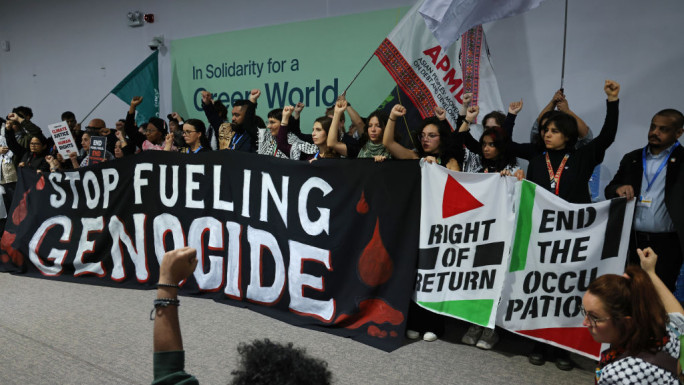
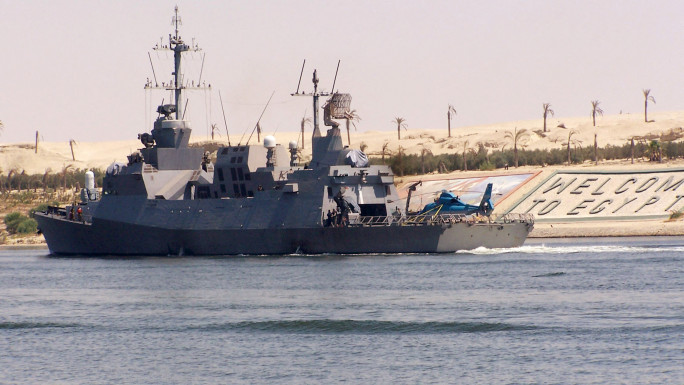
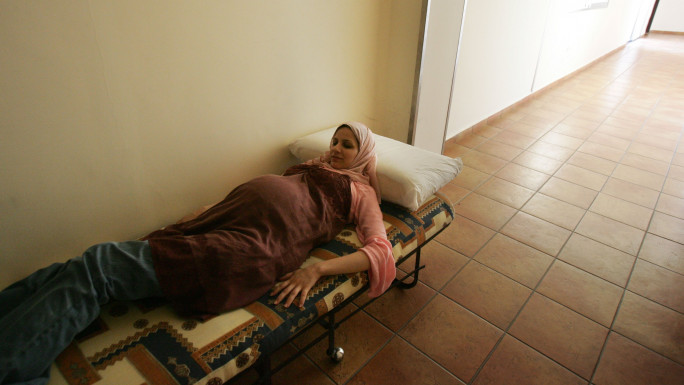
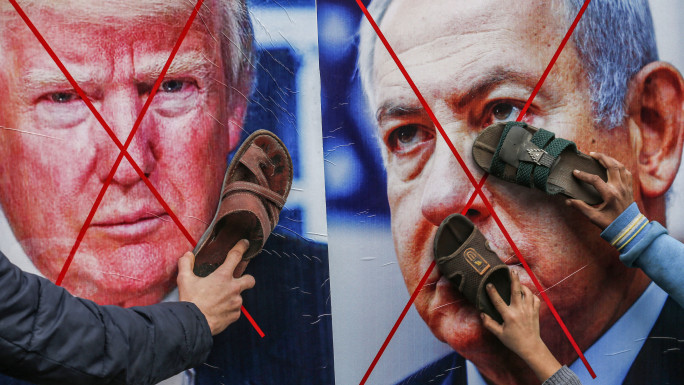
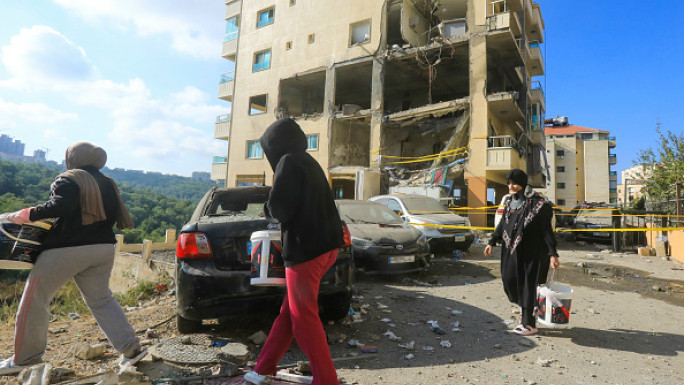
 Follow the Middle East's top stories in English at The New Arab on Google News
Follow the Middle East's top stories in English at The New Arab on Google News

